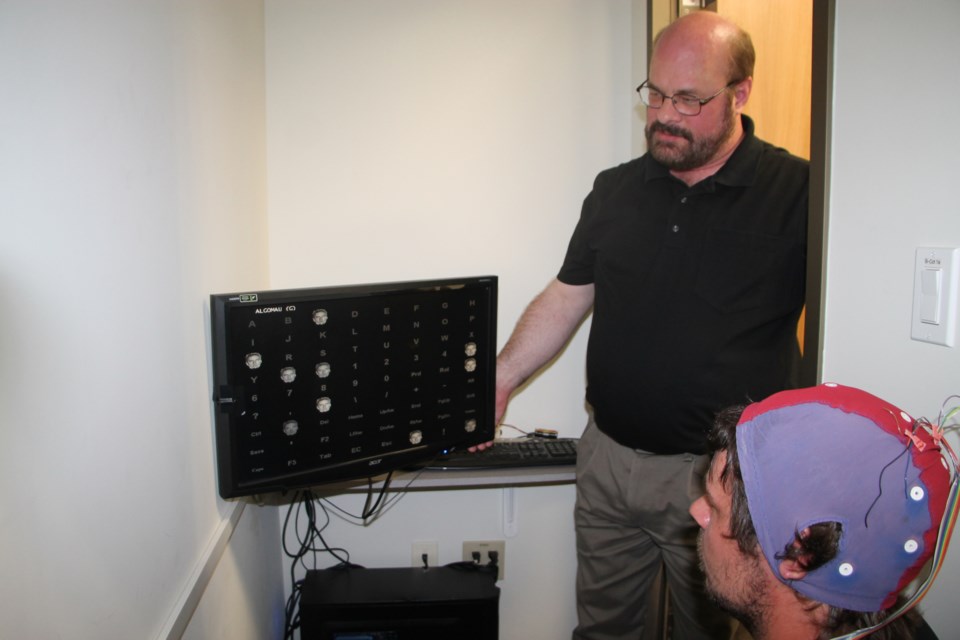Amyotrophic lateral sclerosis (ALS, also known as Lou Gehrig's disease) is an incurable, fatal brain disease which attacks a person's bodily functions, such as movement, speaking, swallowing and ultimately breathing.
The cause of ALS is generally unknown.
An ALS patient's mind, however, remains sharp throughout the ordeal, and a local man is working hard to make life a little easier for those suffering from the disease.
George Townsend is an Algoma University computer science and mathematics associate professor and director of the school's Brain Computer Interface Laboratory.
In the lab, Townsend is currently perfecting computer technology which he would like to see made available to ALS patients who have lost their ability to speak, to allow them to communicate with their family, friends and caregivers.
"What we're doing is developing a device that will allow people who are severely paralyzed to communicate with the outside world (ALS patients, stroke victims and others)," Townsend told SooToday.
"It's a virtual checkerboard (on a computer screen) of rows and columns of alphabet letters, and when the letter you want blinks, your brain detects it and it generates a response in the EEG (electroencephalogram, which consists of electrodes, attached in this particular case to a cap worn by the patient)."
Those responses are then flashed back to the top of a computer screen in word form for others to read.
"One lady who had ALS, we went to her home and tested the system out and it was a successful test," Townsend said.
"When she did it, she spelled out 'thank you,'" Townsend smiled.
"If there is anybody in the Sault that has ALS who would like to try this out we would be more than happy to accommodate them, we can even go to their house if necessary," Townsend said.
Townsend may be reached at his office at 705-949-2301 extension 4359 or at the lab at extension 4517.
The technology itself is not new but Townsend is perfecting it so that information is relayed faster.
"Applications people will take that and make a speech synthesizer (so that ALS and stroke victims who have lost their speech may 'speak' to others)," Townsend said.
"Our job is to make it work properly and to speed it up, voice synthesizers will be perfected by someone else, other people will find ways to apply it," Townsend said.
His efforts have not gone unnoticed, not only by the scientific world, but also by the Guinness Book of World Records.
The venerable publication is considering recognizing Townsend's work as producing the "fastest EEG spelling rate."
Larger universities and the private sector, it is hoped, will show interest and invest in the technology.
Townsend hopes the federal government will fork over more money for research and development concerning the technology, and that jurisdictions such as Ontario will one day cover the cost of helping ALS patients and others access the technology.
Townsend started his research in earnest in 2007.
He is currently assisted by Dan Kellar, an Algoma University graduate working as an intern and Kanzhe Liu, a grad currently furthering his education at University of Toronto.
Townsend is a Sault native who began his post-secondary education at Algoma University, moving on to Lake Superior State University (LSSU) and the University of Waterloo before getting his doctorate in neuroscience from Technische Universitat Graz in Austria.
He first became involved with computer-based technology designed to help paralyzed patients at the Wadsworth Center affiliated with the New York State Department of Health.
Townsend began his teaching career as a sessional instructor in 1989, becoming a full-time computer science professor at Algoma in 1999.
